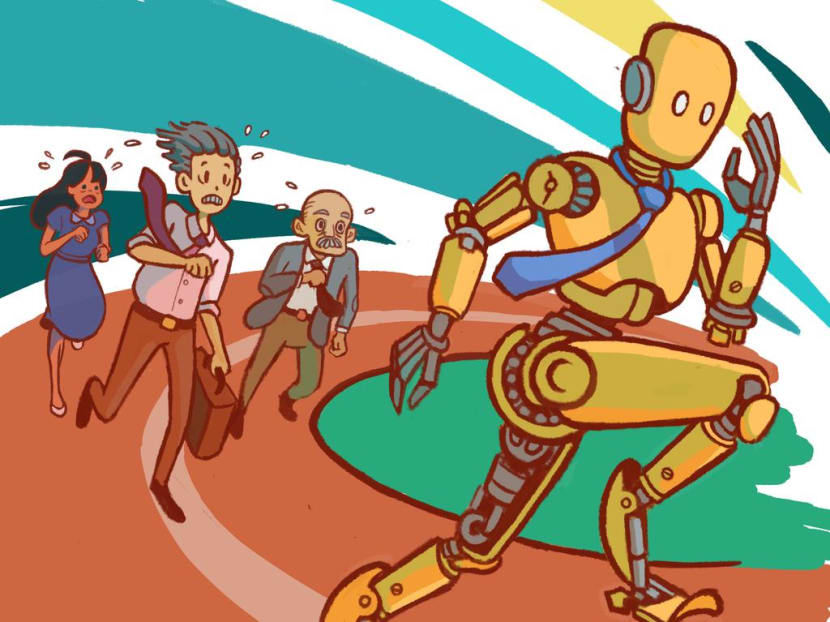84% of Singaporean workers trust robots more than their managers: Study
SINGAPORE — As increasing numbers of firms adopt advanced technology such as artificial intelligence (AI), workers are also starting to trust robots more than their human managers, a study has found.

In Singapore, 84 per cent of workers said they trust robots more than their managers. This puts the country third behind India (90 per cent) and and China (88 per cent).
SINGAPORE — As increasing numbers of firms adopt advanced technology such as artificial intelligence (AI), workers are also starting to trust robots more than their human managers, a study has found.
The study by technology firm Oracle and human resource (HR) firm Future Workplace found that 84 per cent of employees in Singapore trust robots more than their managers.
However, they still think their managers are better than robots at some things, such as understanding their emotions, coaching them and creating a work culture.
This second edition of the annual AI at Work study, published on Wednesday (Oct 16), surveyed 8,370 employees, managers and HR leaders across 10 countries, including 260 respondents from Singapore.
EMPLOYEES TRUST ROBOTS MORE THAN THEIR MANAGERS
The study found that rise of AI at work has made a significant impact on the relationship between employees and their managers, and is reshaping the traditional roles that HR officers and managers play:
84 per cent of Singapore respondents said they would trust a robot more than their manager, behind India (90 per cent) and China (88 per cent)
47 per cent said robots are better at providing unbiased information
42 per cent said robots are better at maintaining work schedules
34 per cent said robots are better at problem solving
30 per cent said robots are a better resource for asking questions without scrutiny
When asked what managers can do better than robots, Singaporeans said the top three tasks managers excelled at were:
Understanding their feelings: 49 per cent
Coaching them: 38 per cent
Creating a work culture: 36 per cent
Oracle’s head of human capital management applications for Asia Pacific, Mr Shaakun Khanna, told TODAY the study findings are a “big warning sign” for managers.
“As more and more AI gets into enterprise applications, managers will need to develop their emotional intelligence to stay relevant. Effective managers need to leverage AI to bring objectivity and emotional intelligence to bring empathy, to be effective leaders,” he said.
Mr Khanna said managers can also stay relevant in the workplace by using data to help them in their decision-making or offering guidance and advice.
They can also build a data-driven, meritocracy-based management style, he said.
AI WELCOMED AT WORK
The study found that despite worries that AI would disrupt jobs, many workers welcome the use of AI at work:
56 per cent of Singapore workers use some form of AI at work, higher than the global rate of 50 per cent
49 per cent in Singapore felt that the use of AI would help free up their time
Among the countries surveyed, 65 per cent of workers have a positive outlook on having robot co-workers, the study found.
The workers who were most excited about AI were those from:
India, where 60 per cent of workers said they felt excited about the technology
China: 56 per cent
United Arab Emirates: 44 per cent
Singapore: 41 per cent
While those least excited about AI were from:
France, where only 8 per cent expressed excitement about AI
United Kingdom: 20 per cent
United States: 22 per cent
Japan: 25 per cent








